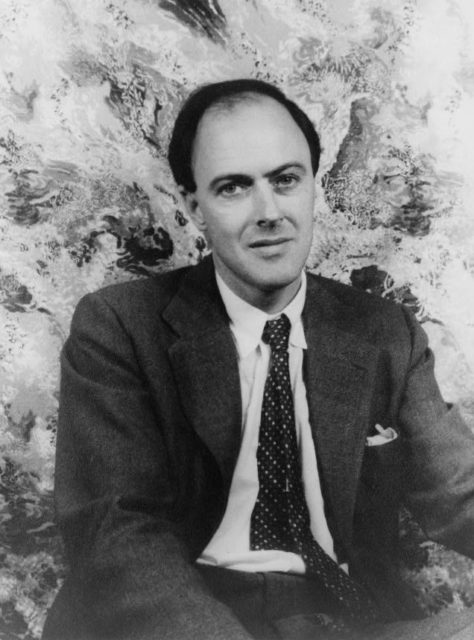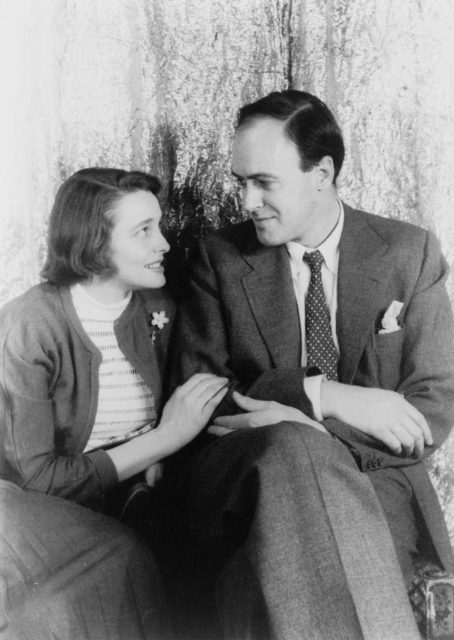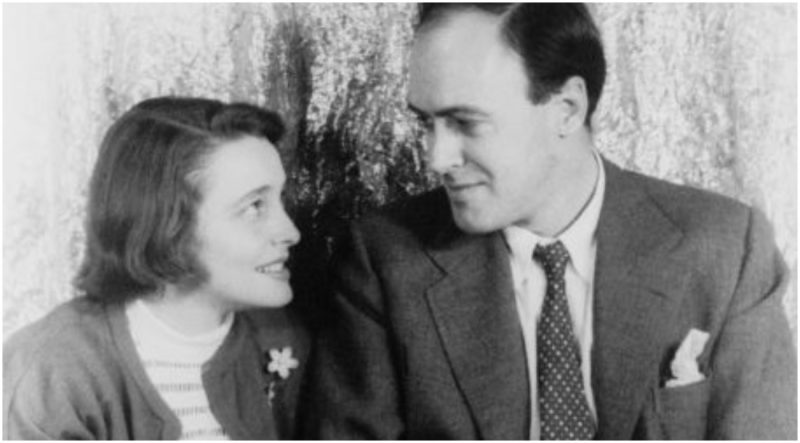Roald Dahl, one of the most prolific authors of children’s literature and the inventor of Matilda, Charlie and the Chocolate Factory, Talented Mr Fox, The BFG and many more, has shaped and invigorated children’s imaginations for decades. In addition, during his lifetime of writing, this wonderful English storyteller invented a whole new language called “Gobblefunk.”
Dahl created more than 500 new words and character names that were playfully nonsensical yet recognizable, from the well-known “Oompa-Loompas” and “whizzpopping” to the less known “crodoscollop” and “splatch-winkle.”
The words are found across his literary works and explain meaning when Dahl’s dreamworld transcends normal adjectives. This brilliant invention begs the question of how one can possibly create and integrate such originality.
The answer may lie in one tragedy which completely changed Dahl’s life. In 1965, his wife, the American actress Patricia Neal, was pregnant with the couple’s fifth child Lucy when she suffered a potentially devastating bleed from an aneurysm in the brain, causing a stroke. Just like many stroke victims, Patricia’s speech apparatus was damaged and soon after, she began to say very odd things.

Reportedly, she couldn’t get the right words out. If the couple were having a drink and she wanted another, she’d ask for a “sooty swatch, no, I mean a soap driver.” When she wanted a cigarette, she asked for an “oblogon.” She didn’t only use abnormal words but also abnormal sentences, like “I’ll jake my diddle,” meaning, “You’re making me cross.” Dahl wrote all these words down, and they percolated through his mind and although he was uncertain of how to handle the situation, he decided to try to embrace the sheer joy of playing with words, a response that helped him through his quiet anguish.
Dahl had used invented words in his first children’s book, The Gremlins, in 1943, but in his BFG he used a completely new language. The BFG is full of weird words and expressions, and the giant struggles to get his words out, similar to stroke victims.

In the book, “cheerful” is replaced with “hopscotch”, “writing” with “squabbling,” and “silly” with “frothbuggling,” The “snozzcumber” is a fictional food, resembling a cucumber but different in various aspects. It is striped, black and white, and is nine to twelve feet long. Along with “frobscottle,” a nice drink with soft drink bubbles, it is the sole diet of the BFG. A “human bean” is what the giants of Giant Country call a human.
Most giants eat “human bean”’ unlike the BFG who is a vegetarian that only eats “Snozzcumbers.” “Crodoscollop” is what one gets when tasting an absolutely great flavor, while “splatch-winkle” is what you do when you hurry about.
Patricia Dahl pulled through her health struggle with the assistance of Dahl and a number of volunteers who developed a new, unique style of therapy that fundamentally changed the way stroke patients were treated. Dahl followed the example of school children who spend about six hours a day at school to learn to speak properly. He set up a rotation for friends and family to come and do an hour each, six hours a day to help his wife speak again. His approach to stroke rehabilitation became a movement that was eventually absorbed into the Stroke Association.

Well known for his diverse language, six of Dahl’s made-up words, including “Oompa Loomp,” “golden ticket,” and “witching hour,” were added to the Oxford English Dictionary in 2016, for Dahl’s 100th birthday.
Michael Proffitt, chief editor of the Oxford English Dictionary, reported, “For many children, Roald Dahl’s work is not only one of their first experiences of reading, but also their earliest exposure to the creative power of language.”
The “gobblefunk” was finally recognized and established in the Oxford Roald Dahl Dictionary, published in 2016, edited by Susan Rennie, a teacher of lexicography. So, if you ever wondered what language Oompa-Loompas speak or what rhymes with “frobscottle,” this dictionary will help you find out and delve even deeper into the magnificent, imaginary world of Roald Dahl’s stories. Don’t let yourself be “biffsquiggled” any longer!
